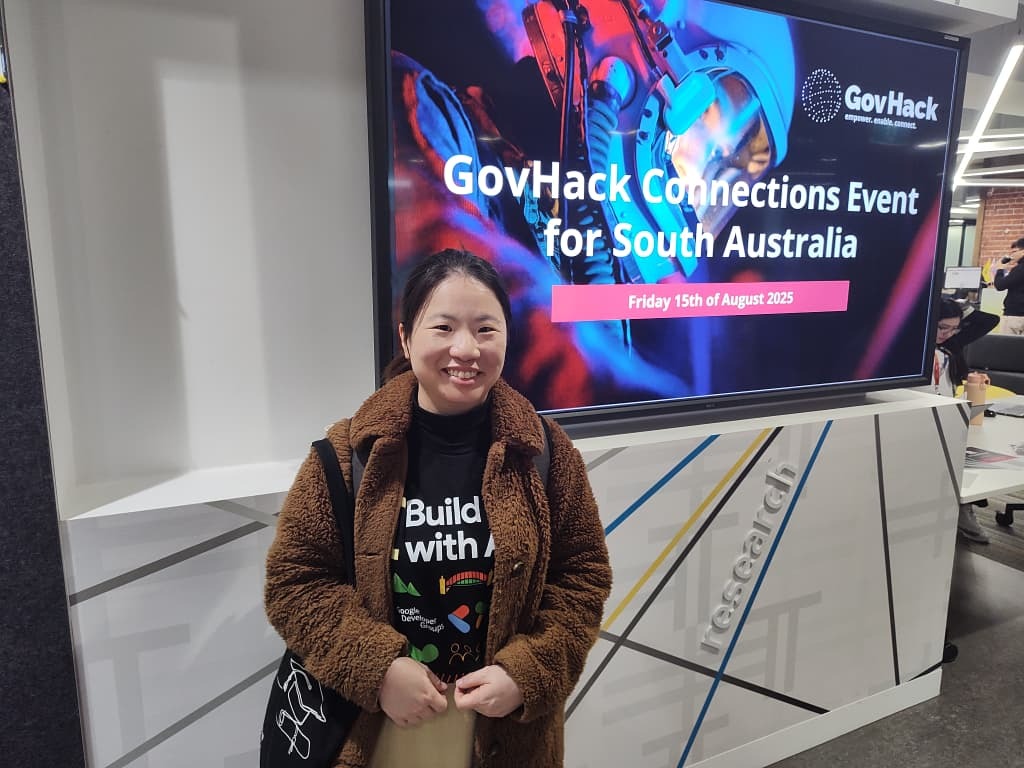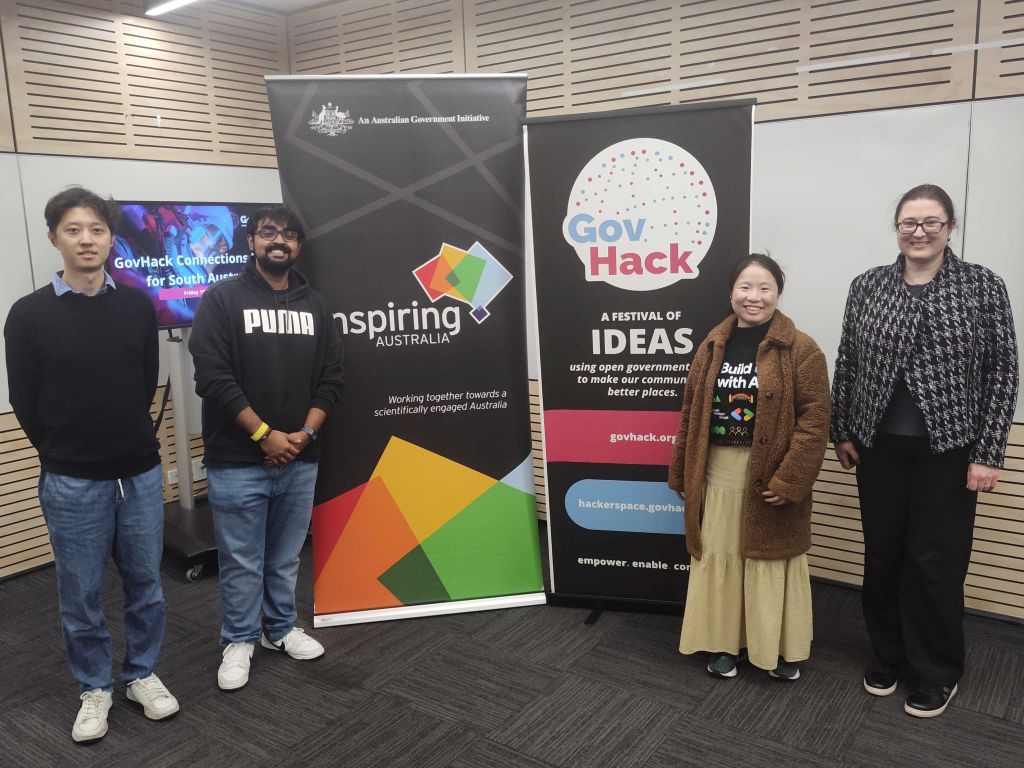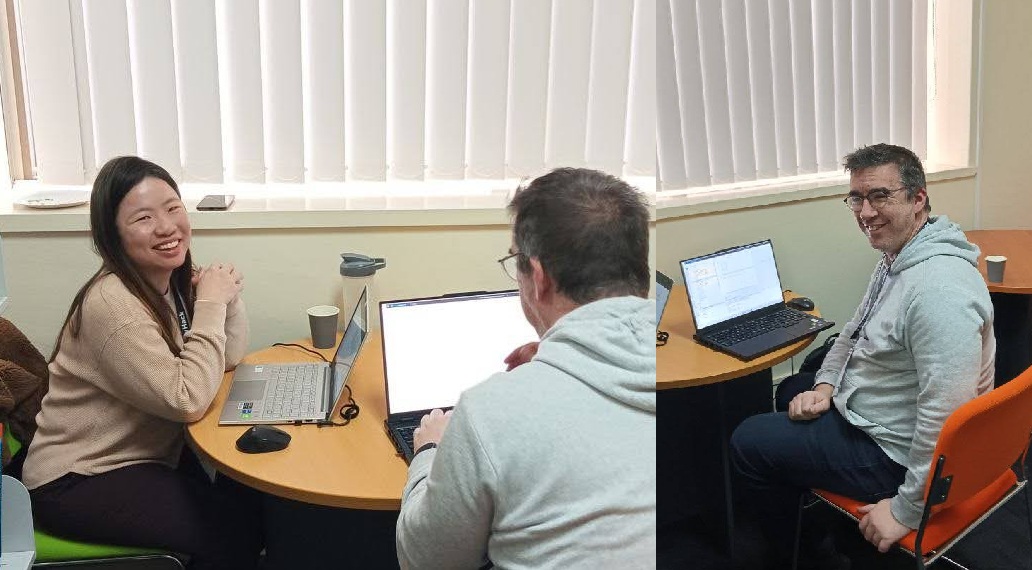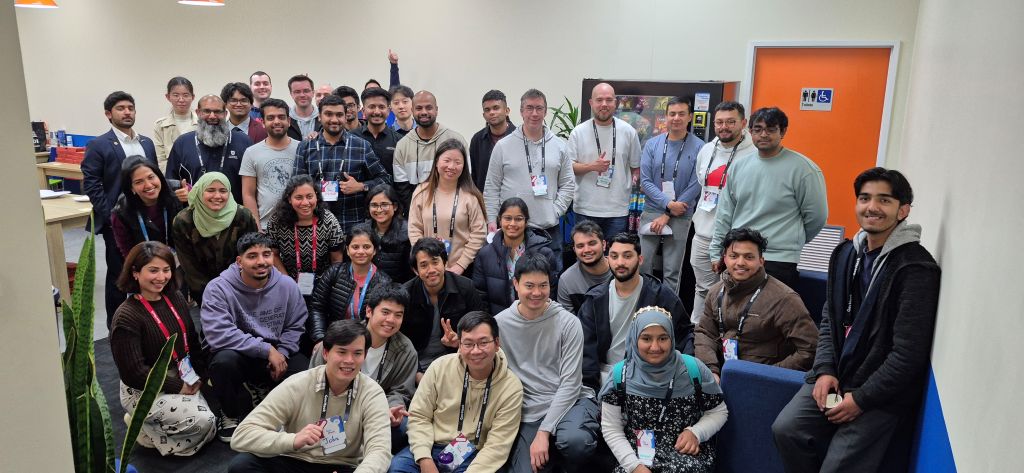Yong Kheng Beh's First GovHack: A Weekend of Learning, Teamwork, and Open Data

This blog is written from Yong Kheng’s personal perspective, reflecting on the skills, challenges, and insights gained from participating in GovHack.
---
From 29th to 31st August, I joined GovHack for the very first time. It turned out to be a weekend full of surprises, challenges, and new discoveries—not only about technology, but also about the power of teamwork and open data.
---
How It All Began
To be honest, I wasn’t planning to do much. My original idea was to attend casually, maybe join solo, or even just watch from the sidelines. I had a few invites from friends to join their teams, but I turned them down, thinking I’d just “test the waters” this year.
But sometimes the smallest things can change your plans.
On opening day, 29th August, the weather was wild—storm warnings from the Bureau of Meteorology, cancelled volunteering, and every reason to stay home. I almost skipped the GovHack opening ceremony too. Then, a friend, Anjali Acharya, texted me asking if I was coming, and promised to meet me there. That message convinced me to head out into the storm, and I’m so glad I did.

Photo: Attending the GovHack Adelaide Connection on 15 August 2025 with Infoxchange Adelaide volunteers (Yi Han, Anubhav, and me) and Catherine, our volunteer coordinator. Little did I know I would join GovHack just a couple of weeks later!
---
Finding My Place
At the venue, I caught up with familiar faces and met new people. That’s when I connected with Sam Wallace, who would become my teammate for the weekend.
I hadn’t planned on joining a team, but after chatting with Sam, who had fascinating work experience and deep technical knowledge, I felt inspired. The energy in the room, with everyone forming teams and brainstorming, was contagious. Eventually, I asked if I could join Sam’s team, and that was the turning point of my GovHack journey.
---
The Problem We Chose
Our chosen problem statement was:
“Identify the ideal place to build a new data centre using open data.”
Most teams chose challenges they already had expertise in, which makes sense in a 46-hour hackathon—you want to play to your strengths. But Sam and I decided to do the opposite. Neither of us had any prior experience with GIS or mapping, but that’s exactly what drew us in. We wanted to learn something completely new, even if it meant taking the harder road.
At first, we brainstormed all the factors that could influence where a data centre should go:
- Power supply – access to power stations and transmission lines
- Water bodies – to support pumping and cooling
- Climate – especially average temperature, to naturally cool the centre and reduce costs
- Natural disaster risks – like flood, bushfire, or cyclone exposure
- Network access – fibre optics, stations, and connectivity infrastructure
- And more, such as land use and environmental impact
Gathering all of that data in a weekend was ambitious. In the end, we managed to secure:
- Power stations and transmission lines
- Water bodies
- Bushfire history
- Historical climate data (temperature and rainfall)
We ran out of time to gather the rest, but even with what we had, it was enough to build a proof of concept and demonstrate how open data could guide critical infrastructure decisions.
And while our project focused on data centres, the same approach could apply to many other challenges—like planning safer communities, improving sustainability, or supporting local development. That’s the real potential of open data: empowering not just governments and businesses, but communities too.

Photo: Sam and I deep in thought during the hackathon on the 30th.
---
The World of Open Data
On the 30th, Sam jumped straight into developing the platform while I started sourcing open data. That’s when I discovered just how big and tricky the world of GIS data can be.
There were so many formats, GDB, GeoJSON, SHP, GPKG, GeoTIFF. Some files were enormous, far too big for GitHub. I also learned that GIS data comes in points, lines, and polygons, a whole new way of thinking about information.
The challenges were real:
- Some datasets were only viewable on map apps, with no option to download.
- Others I was interested in were locked behind a paywall.
- There was no single “one-stop shop” for map data. I spent hours Googling, scrolling through databases like digital.atlas.gov.au and data.gov.au, just to find something that might be usable.
- Even once I found data, the files needed cleaning and converting into smaller, workable formats.
- And with my low-spec laptop, large files often caused processes to crash midway.
Even though it was frustrating at times, it was also eye-opening. Open data might be complex, but it holds huge potential for communities to understand and solve real-world problems.
Meanwhile, Sam made steady progress on the platform itself. A trivia night hosted by mentors and volunteers gave us a much-needed break (Sam came 2nd place, I came 5th).
When I felt like I wasn’t contributing enough, Sam reminded me: “We only need to prove our concept. What we’ve done in a day is more than some people achieve in weeks.” That encouragement kept me going.

Photo: Group photo after dinner and trivia showing the amazing GovHack spirit!
---
The Final Day
On the 31st, our last day, I shifted focus to make sure our project page was complete and to create a demo video. I’m not a skilled video editor (and my voiceover was awkward at best), but we submitted a working prototype, documentation, and a video—all within the weekend.
It wasn’t perfect, but it was something we built together, from scratch, in just 46 hours.
---
Reflections
Looking back, GovHack wasn’t just about coding or building a project, it was about learning, collaboration, and the value of open data. We deliberately chose a challenge outside our comfort zones, and that made the experience even more rewarding.
I went from almost sitting out, to diving into a whole new area of technology, to finishing the weekend with something I’m proud of.
I’m grateful to the organisers, mentors, and volunteers who made the event possible. Thanks to Catherine for encouraging us Infoxchange volunteers to get involved, Anjali for messaging me to attend the opening, and especially Sam for welcoming me into the team and encouraging me along the way.
---
For anyone curious about GovHack or open data, I’d encourage you to give it a go. You don’t need to be an expert—you just need curiosity and the willingness to learn. It’s a chance to collaborate, build something meaningful, and see how data can be used to help communities.
I’ll definitely be back next year.
---
Explore Our Project
If you’d like to see what we built during GovHack, here are the links:
GitHub Repository – our code, project board, and data experiments
GovHack Challenge Entry – our official submission page
Sign up for the newsletter!
Subscribe to our monthly newsletter to receive news, information and events for the community sector in SA.




